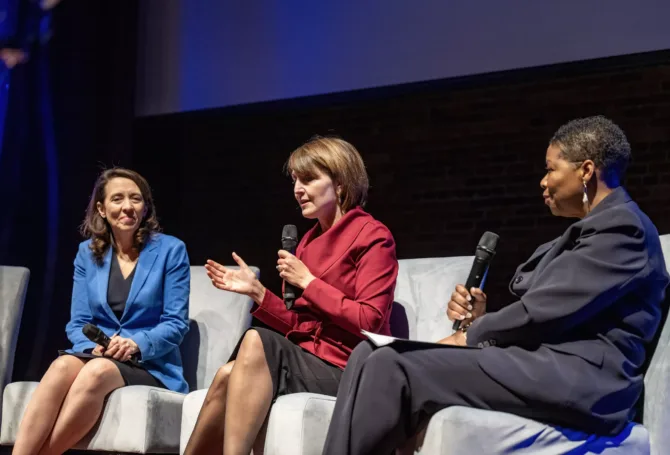
Democratic control of the Senate will bring many significant changes, but perhaps none greater than Bernie Sanders as chairman of the Senate Budget and Sherrod Brown as chairman of the Senate Banking committees.
Sanders, who self-identifies as a Democratic socialist, will lead the Senate design of another major financial stimulus package, while Brown, one of the most progressive members of the Senate, will take charge of financial regulation, housing and public transit. The contrast with their GOP counterparts whom they will replace couldn’t be sharper.
All indications suggest Sanders will test the boundaries of what can be stuffed into a budget reconciliation measure, which is harder to bury in Senate procedural moves. That could include tax increases on corporations and the rich, which would be engineered by Oregon Senator Ron Wyden, who takes over as chair of Senate Finance.
In an interview, Sanders sketched his $1 trillion-plus stimulus proposal, which includes an additional $1,400 direct payment to individuals and financial aid to states and local governments for COVID-19 vaccine distribution, testing and contact tracing. Sanders also wants an emergency universal health care fund to ensure people without health insurance can obtain medical care during the pandemic. He calls his plan “aggressive” to combat the “enormous severity” of the pandemic.
All indications suggest Sanders will test the boundaries of what can be stuffed into a budget reconciliation measure, which is harder to bury in Senate procedural moves. That could include tax increases on corporations and the rich, which would be engineered by Oregon Senator Ron Wyden, who takes over as chair of Senate Finance.
Senate Democratic moderates may have reservations about how far Sanders may push. For his part, Sanders has pledged to work cooperatively with the incoming Biden administration as well as other Democrats. For example, he says his Medicare-for-All proposal will be left in Senate committees that deal with health care.
Brown says the Banking Committee has kowtowed too long to Wall Street. “We’re going to put the dignity of work at the center of everything we do,” Brown says. His ideas include investigating the relationship between executive compensation, stock prices and worker wages. He also seeks to purge Trump appointees from financial regulatory agencies and reverse some industry-friendly regulations imposed during the Trump administration.
One of Brown’s more far-reaching concepts would direct the Federal Reserve to create a public option for people unable to establish a regular bank account, allowing them to cash paychecks without huge fees and receive government benefits, including refundable tax credits.
The Ohio Democrat wants committee actions to pay more heed to economic inequality and climate change. Brown proposed steps to block pandemic-hardship evictions, expand access to housing and banking services for low-income Americans and accelerate the shift by local transit agencies to electric buses.
One of Brown’s more far-reaching concepts would direct the Federal Reserve to create a public option for people unable to establish a regular bank account, allowing them to cash paychecks without huge fees and receive government benefits, including refundable tax credits.
Brown noted he had an early, unexpected opportunity to discuss his agenda at length with ranking GOP Senator Pat Toomey of Pennsylvania while both sheltered in place for hours during last week’s insurgency at the Capitol.
President-elect Joe Biden gave serious consideration to naming Sanders as his Labor Secretary. However, it wasn’t a sure bet Sanders would be replaced by a Democrat, thus undermining the hard-won Democratic majority in the Senate. That majority rests with Vice President Kamala Harris casting the tie-breaking vote for a Senate consisting of 50 Democrats and 50 Republicans.




